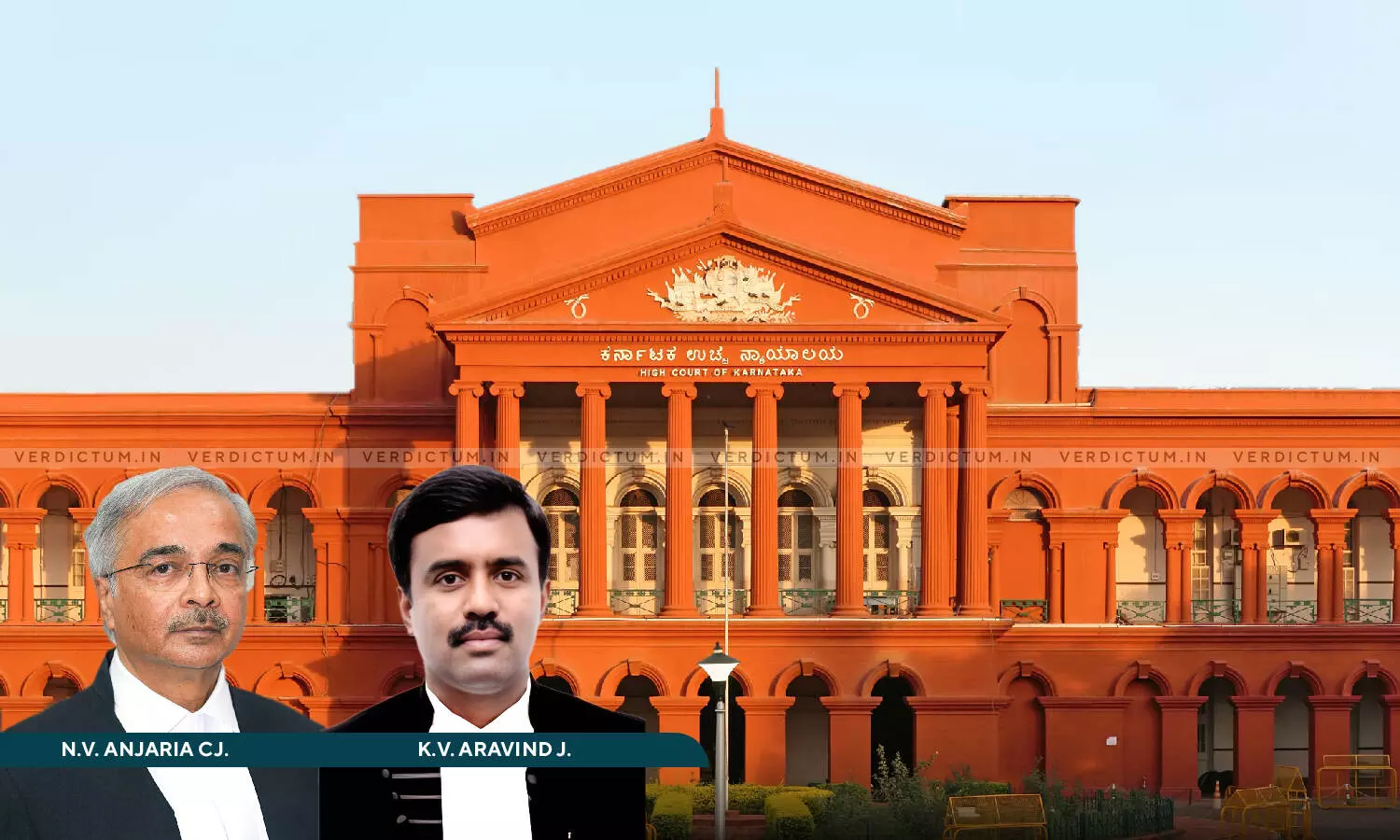
Chief Justice N.V. Anjaria and Justice K.V. Aravind, Karnataka High Court
Party-In-Person Must Show Competence In Pleadings Before Being Allowed To Argue: Karnataka High Court
 |
|The petitioner, appearing as party-in-person, filed a writ seeking directions for a land survey but submitted vague, verbose, and legally unsound pleadings.
The Karnataka High Court emphasized that individuals representing themselves in court must possess the requisite ability to draft coherent pleadings and present their case effectively.
The petitioner, an advocate claiming to be a social worker and administrator of a Masjid and Khabrastan (burial ground) located in Rudrapatna, Arkalgud Taluk, Hassan District, had approached the Court seeking a direction to government authorities for the proper survey of a piece of land purportedly used as a Muslim burial ground.
A division bench of Chief Justice N.V. Anjaria and Justice K.V. Aravind observed, “This phenomenon of indisciplined irrelevant, unnecessary and long unrelated pleadings which are even otherwise, hardly up to the mark are seen in common whenever party-in-person appears either as petitioner or respondent and conducts the matter.”
Taking note of this broader trend, the bench recommended that while evaluating whether a person is competent to appear in-person under the High Court of Karnataka (Conduct of Proceedings by Party-In-Person) Rules, 2018, the concerned committee must also assess the individual's capacity to draft proper pleadings. It added, “Therefore, it is desirable that while assessing the competency to appear as party in-person by the Committee under the High Court of Karnataka (Conduct of Proceedings by Party-In-Person) Rules, 2018 and before issuing Form 16 certifying party-in-person to be competent to appear before the court, their capacity to plead and draft the case properly as per the law of pleadings, should also be applied as one of the criteria.”
AGA Niloufer Akbar appeared for the Respondents.
The bench noted with concern that the petition, drafted by the petitioner himself, contained excessive and irrelevant details, lacked clarity, and failed to present a concise and legally sound argument. The Court remarked that the pleadings were “wayward,” filled with “long statements” and “extra” factual content unrelated to the main issue, thereby making it difficult to extract the central controversy.
The Court considered the state government’s affidavit, which clarified that Survey No. 73 is reserved for burial ground use by a specific community, except for a portion that has historically been used as a road by local villagers. In light of this, the Court dismissed the petition, stating that the authorities must continue ensuring protection of the burial ground from encroachments.
Cause Title: Mohamed Ikbal v. Secretary to Government of Karnataka & Ors.